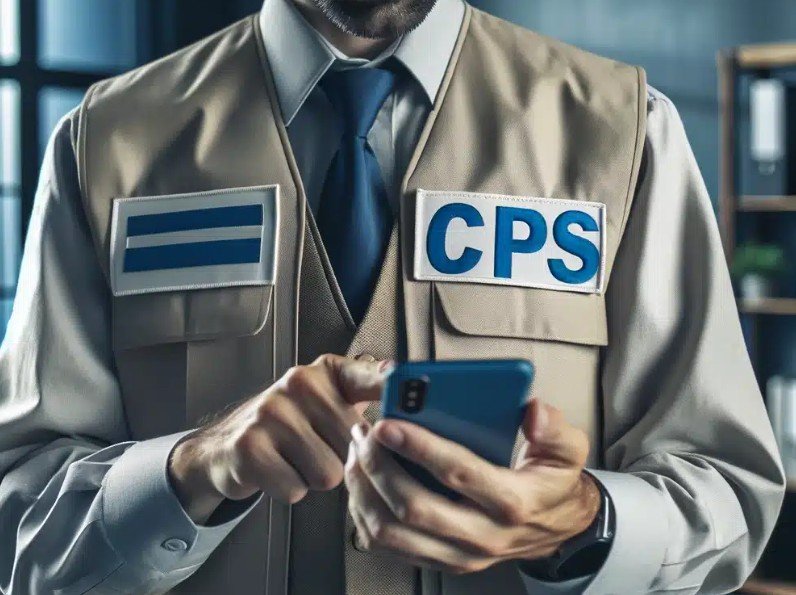Do you know Can CPS Get Your Phone Records? The invasive nature of the entire procedure makes participating in a CPS investigation in the case one of the most challenging aspects. You may feel that your privacy has been violated just because someone submitted an anonymous report to CPS about how you treat your children.
When we learn that someone has seen something, or is making assumptions about our parenting of the children we love so dearly, negatively, it might be one of the more difficult realizations we as parents must make. In a nutshell, that is the foundation of a CPS case.
Typically, a CPS investigation starts with the dispatch of an investigator to your residence to speak with you about any allegations concerning your kid’s safety and well-being. A state organization called CPS looks into allegations of abuse or neglect against your child.
Remember this, but even if CPS does visit your home, it could not be for any injury you specifically did. However, you have obligations to make sure that your child is as safe as possible at all times as the child’s caretaker and conservator. You will therefore play a significant role in any investigation involving your child.
It would help if you decided how to cooperate with the caseworker and investigator assigned to your family once the investigation has started. Nothing in the law requires you to cooperate with a CPS inquiry.
Depending on your situation, it might even be beneficial for you to abstain or only sometimes partake. However, it is advised that you consult with an experienced lawyer who has handled CPS matters in the past before you can determine what is in your best interest and that of your family. You can be in a situation where you’ll know what to do when a CPS caseworker knocks on your door thanks to the experience of a CPS attorney and their understanding of your particular circumstances.
Can CPS Get Your Phone Records?
Not likely at all! The records that CPS keeps are very private, especially the ones about the first call to report. A subpoena must be for a case that is still going on (note this is different than a CPS investigation which is not an open legal case).

- CPS must initiate a lawsuit to obtain anything. Without a lawsuit, it would not be possible to issue a subpoena, which is how one obtains information from a third party pertinent to the case. If CPS files a case, they may try to subpoena a third party, such as a phone company, if they believe the material would be relevant to their argument. By submitting a MOTION TO QUASH SUBPOENA and arguing that the material is not pertinent to the case, you might potentially stop this. The judge would then rule on a case-by-case basis.
- The history of texts is not kept. Contrary to widespread assumption, a text message’s actual text is only stored for a maximum of three days, if even, depending on the provider. There is still only a list of who sent each other messages, otherwise nothing. The text’s basic details are gone.
However, phone records can be obtained by subpoena and, depending on the company, can go as far back as a year. Again, this assumes that CPS files a lawsuit serves a subpoena, and withstands a motion to halt the case challenge.
What Do Cell Phone Records Show?
The caller’s phone number, call length, start and end times, and the mobile phone tower the phone was connected to are all displayed in cell phone records, also referred to as “Call Detail Records.” Although the CDRs do not contain the actual contents of the messages, they do contain text message metadata. A call detail record will also include a list of all calls, connected or not. The cell tower is only on request for each connected phone conversation, and consequently, the location is made public.

Ext messaging is likewise displayed in the call detail records, but the messages’ contents are not. Within days following the incident, a request must be made to the cell phone provider to obtain the contents. Not all texts, meanwhile, are what mobile phone providers classify as text messages.
For instance, iMessage replaces SMS with end-to-end encryption and a data/WiFi connection for sending and receiving messages. It is what Apple Apple devices utilize, and if iMessage isn’t accessible, SMS is used instead. Cell phone providers don’t have information on these communications because of these alternate systems. In the end, it isn’t a text message incoming; it’s exciting data (like loading a webpage or YouTube movie).
Does Apple, therefore, have access to the message content? Actually, no. They possess a version that has been encrypted but cannot decrypt it. It can only be unlocked by the recipient’s phone or device (end-to-end encryption). Because of this, Apple cannot abide by subpoenas from local and federal authorities.
Phone Bills VS Call Detail Records
In the numerous investigations we conduct, the cell phone device is frequently absent for various reasons, necessitating the use of wireless phone company records to gather any proof of phone usage. These documents, which are distinct from phone bills, are called call detail records.
Since most cellular phone providers bill to the next minute, a phone bill is only accurate to the minute. This implies that a 15-second phone call might appear as 1 minute on a phone bill. A minute-long call appears on a phone bill, and a half will appear as two minutes.
Additionally, a phone bill will only provide proof of billable activity. Calls made from one phone but not connected to another or may not have connected to voicemail on another phone are not considered part of the billable activity.
Interpreting The Data
Voice, text message, and data transmission activity records can all be found in the call detail records. The main error we observe in this activity’s interpretation is that data transmissions result from user engagement.
In a trucking accident case we worked on, the opposing expert was a homicide investigator with 20 years of experience who told the defense attorney that data transfers showed the truck driver was on his phone at the time of the collision. However, the opposing party dismissed the lawsuit once we clarified that data transmissions always occur, whether or not the person is using the phone, and that it is difficult to identify the data transfer type.
Voice calls are a sign that the driver is using a phone, but it is impossible to tell from a record whether or not the phone is being used hands-free. Additionally, the call detail record can tell if an incoming call is answered by voicemail, unlike some phone bills that might not make this distinction.
Call detail records include information about text messaging. Text message content, however, is not. Within days after the incident, a request must be made to the phone company to obtain the text message’s content. Another frequent misunderstanding in distracted driving cases is that incoming text messages signify user engagement.
It is impossible to determine whether the phone’s owner is reading incoming text messages from a phone record. But this isn’t always the case because some programs can send message answers automatically while a person’s phone is in motion in a car or truck. Outgoing text messages can signify that the phone is being used when the message is sent.
Cell Phone Records Used In Court
A phone’s proximity to a specific location can be determined using the location data recorded in call detail records. For instance, it might be crucial to know if someone was around when a fire started in an insurance case. An expert may be able to tell from call detail data whether the phone was in the general region at the fire or other catastrophe.
We have used this information in situations involving fires, explosions, and hit-and-run car accidents. In one case we handled, the insured driver in a hit-and-run case claimed to have been in Atlanta, Georgia, when the accident occurred in Birmingham, Alabama. According to call detail records from the vehicle, the phone was unmistakably in the driver’s hand at the time of the collision.
Things Everyone Should Know About CPS
- According to the law, CPS must look into every untrue report. There are, however, several exclusions to this rule. A description of the possible reasons a report might not be examined can be found below.
- CPS may speak with your child without getting your consent. There are excellent reasons for this policy, which I will explain below, even though this may worry you.
- Even if CPS politely requests entry, you are not required to provide them access.
- You’ve got rights. I’ve included the most crucial points to remember below.
- The investigation is planned to be exhaustive. Some incredibly “nosy” questions might be posed to you, and I’ll explain why below.
- While there are many excellent reasons to consent, CPS cannot test you for drugs without them.
- Despite what you might think, CPS does not wish to take kids out of good homes. There are no quotas or bonuses to meet.
- CPS can assist you. They have access to many tools and information that can aid you at home.
- Working with CPS is the best and most advantageous course of action for you and your child.
- CPS employees are also persons. It’s wise to remember that their main goal is to assist rather than cause harm.
Final Summary
Here we conclude this post Can CPS Get Your Phone Records? In all likelihood, that will never happen. Documents kept by CPS, especially those detailing the initial report, are strictly private. Furthermore, there must be an active case for a subpoena to be issued (note this is different than a CPS investigation which is not an open legal case).
Frequently Asked Questions
How far back can you get phone records?
Landline carriers are required by federal law to keep call detail records for 18 months, but cellular providers keep the details for much shorter or much longer periods.
How long do cell phone companies keep text messages?
Some phone providers also keep track of text messages sent. Depending on the company’s policy, they may remain on the server for three days or months.
Can phone companies see your texts?
Your service provider, sometimes known as your “carrier,” keeps track of all the calls, texts, and even photographs you send from your phone. In billing bills given to the phone owner, almost all cellphone providers provide thorough information on how a phone was used.
What are my rights with CPS in Michigan?
The right to be informed about the subject of an inquiry. Although you do not have a legal right to know who has accused you, you can request written records and investigative reports. You have the right to prevent the CPS investigator from entering your house until they receive a court order to do so under the 4th Amendment of the U.S. Constitution.






